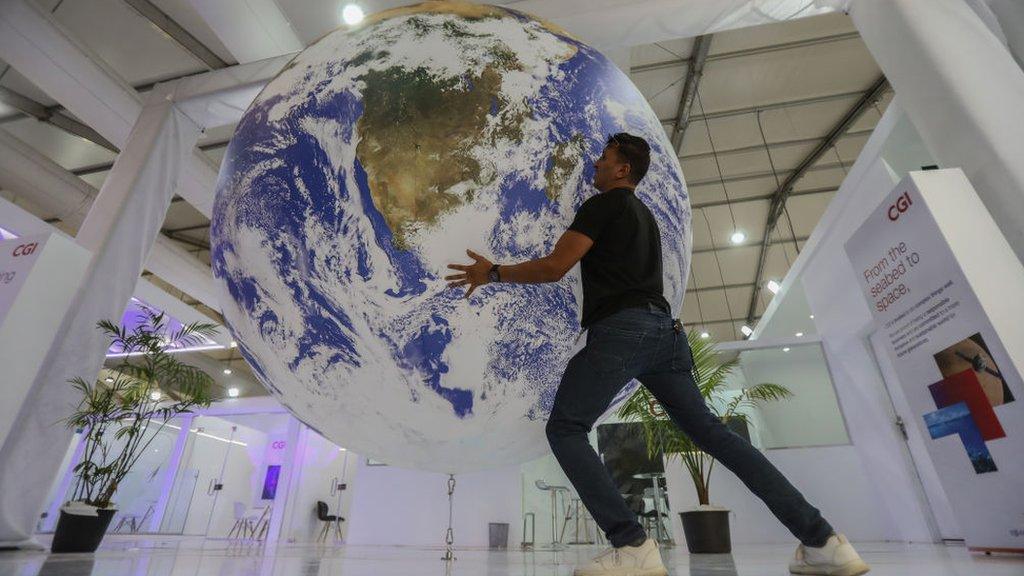Met Office says 2022 has been the UK's warmest year ever
- Published
- comments

The year 2022 will be the warmest on record for the UK according to national weather service, the Met Office.
They said every month was hotter than normal, apart for December when the UK experienced snow, ice and freezing temperatures.
Confirmation of 2022 being the warmest on record will come in the new year, but the year's average temperatures are likely to beat the previous all-time high of 9.88C, set in 2014.
Dr Mark McCarthy, a senior climate scientist at the Met Office said, "Although it doesn't mean every year will be the warmest on record, climate change continues to increase the chances of increasingly warm years over the coming decades."
During very high temperatures in July, the Met Office issued its first ever red warning for extreme heat.
Heatwave dries up source of River Thames during August's drought in England
Dr McCarthy says the temperatures seen in mid-July would have been "extremely unlikely in the pre-industrial period" - the time before humans started emitting greenhouse gases into the atmosphere through the burning of fossil fuels.
"As we have seen in the first two weeks of December, our climate is still subject to notable cold spells during the winter season, but our observational data show these have generally become less frequent and less severe as our climate warms," he added.
UK weather extremes of 2022
Climate Anxiety: Five tips to deal with your worries about climate change
Could 2023 be hotter than 2022?
The Met Office said it expects 2023 to be warmer than 2022.
Predictions suggest it will be the 10th year in a row where the global temperature is at least 1C above average.
Scientific evidence shows that climate change is the cause of the increasing temperatures across Earth.
Newsround's quick guide to climate change
Governments around the world have promised to cut emissions to keep temperature rises below 1.5C.
Keeping the global temperature increase to 1.5C is considered to be very important by climate scientists, in order to avoid some of the worst effects of climate change.
- Published21 November 2022

- Published3 August 2021

- Published15 August 2022

- Published17 August 2020

